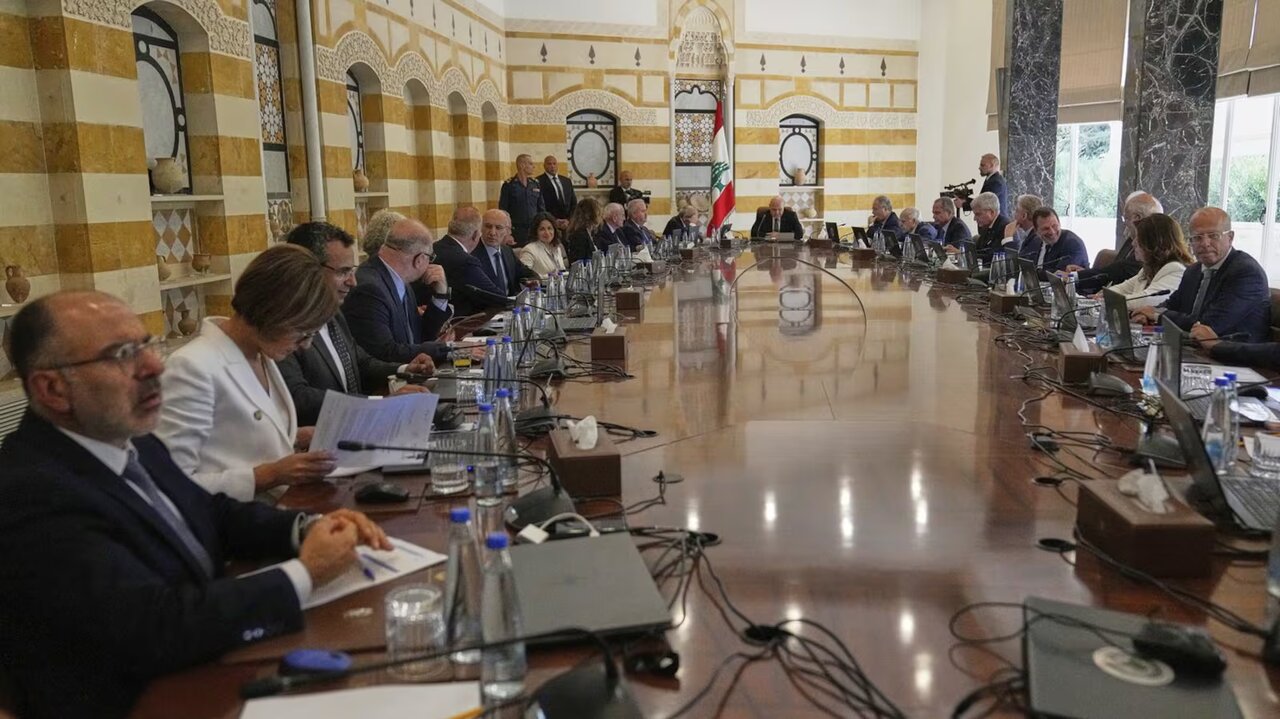How has the Lebanese Army saved Lebanon at a crucial moment?

BEIRUT — What happened in the Lebanese government session on Friday was a truce that could either be sustained or overturned. The Lebanese Army did not rebel against the political authority, but rather put an end to the abuse of political establishment in a bloody, destructive conflict.
Neither the pro–Resistance faction backed down from its refusal to disarm Hezbollah before discussing a defensive strategy, nor did the anti–Resistance faction abandon the original discussion of the issue, even though the Lebanese Forces party was the most disturbed by what happened.
An informed source told the Tehran Times that the government statement was drafted the night before between President Joseph Aoun and Parliament Speaker Nabih Berri. Prime Minister Nawaf Salam also approved it.
As this round of talks ends, matters remain subject to the positions of the guardianship team, particularly Washington, whose envoy, Morgan Ortagus, accompanied by the commander of US Central Command (CENTCOM), will visit Beirut at the end of the week.
These meetings will include brief security meetings with military and security leaders only, excluding political officials.
Riyadh’s position also remains unchanged, as its envoy, Yazid bin Farhan, is arriving in Beirut this week.
Practically, the matter ended with a consensus before the cabinet session between President Aoun and Prime Minister Nawaf Salam, on the one hand, and the Amal-Hezbollah duo, on the other.
Speaker Berri commented on the government statement, saying: “Things are positive. I believe the toxic winds are beginning to dissipate.”
The threat by Hezbollah and the Amal Movement to resign from the government resulted in successful negotiations between the President of the Republic and Army Commander Rodolphe Heikal.
This forced the government not to set deadlines, commit to developing a national security strategy, and affirm Lebanon’s right to self-defense in accordance with the UN Charter.
Reportedly, five phases have been identified to restrict weapons to the state. These phases begin with the army completing its operations in the areas south of the Litani River, then moving to the area between the Litani and Awali Rivers. These phases then move to Beirut, its suburbs, and surrounding areas, then to the Bekaa Valley. The fifth phase, restricting weapons to the state, will be throughout Lebanese territory.
The aforementioned source confirmed to the Tehran Times that the Shiite duo (Hezbollah and the Amal Movement) had warned Aoun and the army commander that the Americans would not fulfill their promises.
According to the source, the plan proposed by the army stipulated a cessation of Israeli attacks and a withdrawal to implement the deployment plan throughout Lebanese territory. The plan also stipulates controlling the Lebanese-Syrian border, closing illegal crossings, preventing arms and drug smuggling, and completing procedures to withdraw weapons from the Palestinian refugee camps.
At a crucial moment, Aoun seemingly realized that the Lebanese army lacked the logistical capacity to implement the plan to disarm the Hezbollah resistance movement. Furthermore, his mission as the new president is to maintain civil peace and not to provoke problems with any domestic party under any circumstances.
For its part, Hezbollah has repeatedly said it is not seeking to undermine civil peace or provoke a clash with the army.
Leave a Comment